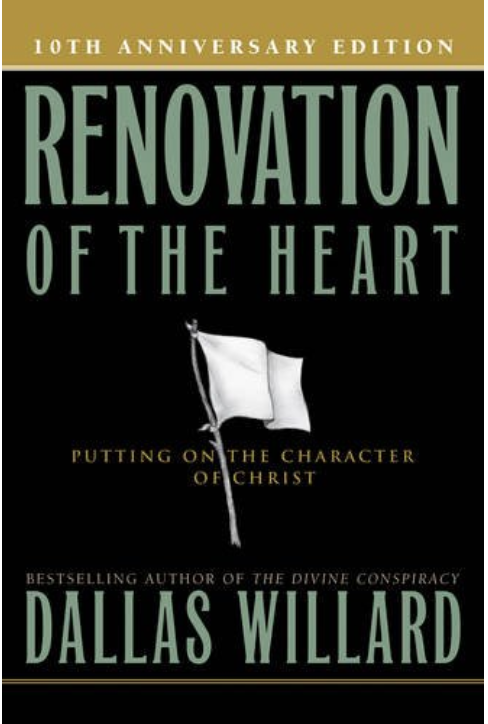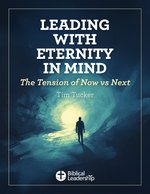Book review: Renovation of the Heart
 Dallas Willard’s work must be read. He is a thinker and philosopher who is willing to tackle difficult issues. He was a professor and the director of the school of Philosophy at the University of Southern California. He authored more than thirty books.
Dallas Willard’s work must be read. He is a thinker and philosopher who is willing to tackle difficult issues. He was a professor and the director of the school of Philosophy at the University of Southern California. He authored more than thirty books.
In Renovation of the Heart, Willard tackles one of the most important issues Christians face: how does God transform our character so it reflects Christ? On one level, the answer seems simple. We read our Bible, go to church, pray, and over time we become more mature and Christ-like. But we must acknowledge that everywhere we turn we find self-proclaimed Christians whose character does not resemble Christ. Then, if we are honest, we must also acknowledge that we are engaged in a life-long struggle to be transformed into Christ’s image.
Willard inserts many insightful nuggets throughout this book. It is the kind of work that demands a slow, careful reading. I won’t write a synopsis. Instead, I’ll note some of the comments that struck me.
He observes that the New Testament “. . . is a world that seems open to us and beckons us to enter. We feel its call” (9). Yet Willard also states, “Christians generally only find their way into this divine life slowly and with great difficulty, if at all” (10). He argues, however, that “No one need live in spiritual and personal defeat” (11).
This book is about spiritual formation. He notes, “I have a spirit and it has been formed. This is true of everyone” (13). Willard argues that our spirit can clearly be formed because it has been. Therefore, it can be re-formed by our effort and the working of the Holy Spirit. He adds, “Disagreements have only to do with whatin our spirit needs to be changed and how that change can be brought about” (14). Interestingly, he states, “Terrorists, as well as saints, are the outcome of spiritual formation. Their spirits have been formed. Period” (19).
He notes that there are 33,800 Christian denominations on earth (22). And though their theology differs, they all try to help form their people spiritually. He suggests that “. . . spiritual formation is no passive process. But Christlikeness of the inner being is not a human attainment. It is, finally, a gift of grace” (23). He adds, “The nature of the person is, today, a battlefield of conflicting academic, artistic, religious, legal, and political viewpoints” (28). In the midst of this conflict, Willard suggests that people have six basic aspects to who they are: thought, feeling, will, body, social context, and soul (30). Willard unpacks how each of these components must be developed in order to reflect Christ.
Willard quotes Francis of Assisi, who advised, “Wear the world like a loose garment, which touches us in a few places and there lightly” (72).
Finally, he concludes that “We must flatly say that one of the greatest contemporary barriers to meaningful spiritual formation in Christlikeness is our overconfidence in the spiritual efficacy of ‘regular church services,’ of whatever kind they may be. Though they are vital, they are not enough. It is that simple” (249).
Reading a Dallas Willard book is challenging, thought-provoking, troubling, and inspiring, often in the same sentence! He is a great thinker who strives to make the reader think as well.
At times, he makes startling statements in order to grab the reader’s attention. He is clearly well-read and brings a vast array of thinkers, theologians, and philosophers to his side as he writes. This particular book takes a thorough look at why our character is not more radically changed despite attending church and reading our Bible for years. This book is helpful in enabling us to focus on particular areas of our person that need to be brought into submission to the working of the Holy Spirit. I believe you will find this book immensely useful as you strive to be more like Jesus.
Willard was a university professor and an unusually bright one at that. There are times you will need to read carefully to stay with him in his argument. He also breaks matters down into numerous categories which, though helpful, can cause the reader to struggle to keep the various issues and categories in proper perspective. Finally, he makes a few statements I might question. Nevertheless, this is a weighty book on a most important topic and well worth reading.
| Richard Blackaby is the president of Blackaby Ministries International and lives in Georgia. He travels internationally speaking on spiritual leadership in the home, church, and marketplace as well as on spiritual awakening, experiencing God, and the Christian life. Richard regularly ministers to Christian CEOs and business leaders. He has written or co-authored 33 books . This article was first published on RichardBlackaby.com. Used with permission from Blackaby Ministries International. Learn More » |
More on Book Reviews
- Book review: Building a Storybrand (by Richard Blackaby)
- Book review: He Leadeth Me (by Richard Blackaby)
- Book review: Rare Leadership: 4 Uncommon Habits for Increasing Trust, Joy, and Engagement in the People You Lead (by Richard Blackaby)
- Book review: Shaping History Through Prayer and Fasting, by Derek Prince (by Richard Blackaby)


